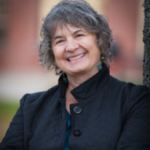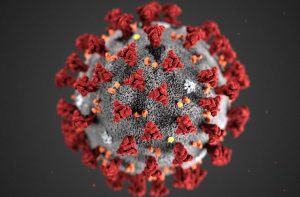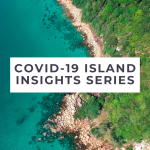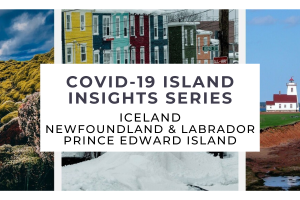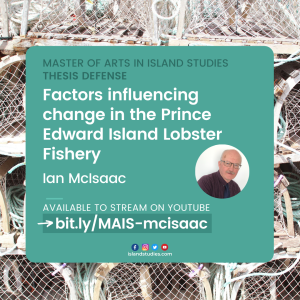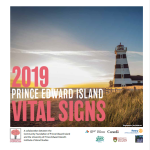April 12, 2021—
The Institute for Northern Studies at the University of Highland and Islands will be hosting the 5th International St. Magnus Conference from April 14–16, 2021. Originally scheduled to take place in Shetland in 2020, this three-day conference will be taking place virtually via Webex. This year’s theme is ‘Island Histories and Herstories’ and explores the contribution of women and men in island communities from before the Viking age to the present, revealing the experiences of island life through research and storytelling.
As part of this conference, there will be a PEI-focused panel session on Wednesday, April 14th, from 11:30am-1:00pm ADT (UTC-3), featuring Dr. Laurie Brinklow and MAIS student Marlene Chapman.
PANEL DETAILS:
Who’s your mother? Bringing women’s work to the fore on Prince Edward Island
Ever since European immigrants chose to settle in Canada nearly four centuries ago, the economy of Atlantic Canada has been rooted in traditional ways of making a living: agriculture and the fishery. Prince Edward Island is no different, with its ‘islandness’ intensifying the social structure associated with each industry, resulting in conservative yet – seemingly paradoxically – cosmopolitan societies. Women have played fundamental roles in the types of work associated with these industries, often sharing responsibility or taking the lead out of necessity.
This panel takes its title from the common expression used when Prince Edward Islanders meet someone new – “Who’s your father?” – used to emplace you in the patrilineal “tribe” that is Prince Edward Island. We turn it on its head, documenting how PEI has often been at the forefront of what we now call ‘feminism’ in the fishery and the arts – and attributing much of this empowerment to the intensity that comes with island living.
Presentation ABSTRACTS:
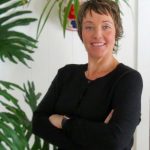
Raising the glass ceiling in the Prince Edward Island fisheries
Marlene Chapman
Lobster fisher and Master of Arts in Island Studies student, UPEI
In Prince Edward Island, interest in women’s roles in the fishing industry is rising like the tide. Already in 2019, an island fishing community instituted an annual award to recognise women, and the provincial government launched a survey to figure out how to reduce barriers in the industry for females. This paper looks at this changing role of women and wonders aloud what this might mean for sustainability of the island’s fisheries.
Women making art on Prince Edward Island
Dr. Laurie Brinklow
Institute of Island Studies, UPEI
Recently the Confederation Centre of the Arts in Charlottetown, Prince Edward Island, hosted an exhibition entitled ‘Who’s your mother? Women Artists of P.E.I., 1964 to the Present’, showcasing PEI women’s art and correcting a gap in the Centre’s acquisitions to better reflect today’s ‘artistic scene that by now arguably produces more female than male artists’. This paper asks the question: how has being ‘islanded’ affected women’s acceptance in a profession that was dominated by males on what has generally been considered a conservative island?
For more information about the 5th International St. Magnus Conference, the full program, and to register to attend, visit uhi.ac.uk/en/research-enterprise/cultural/institute-for-northern-studies/research/conferences/stmagnus2021
